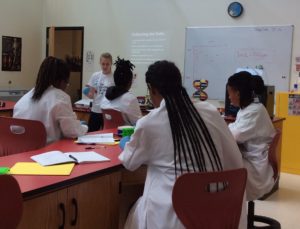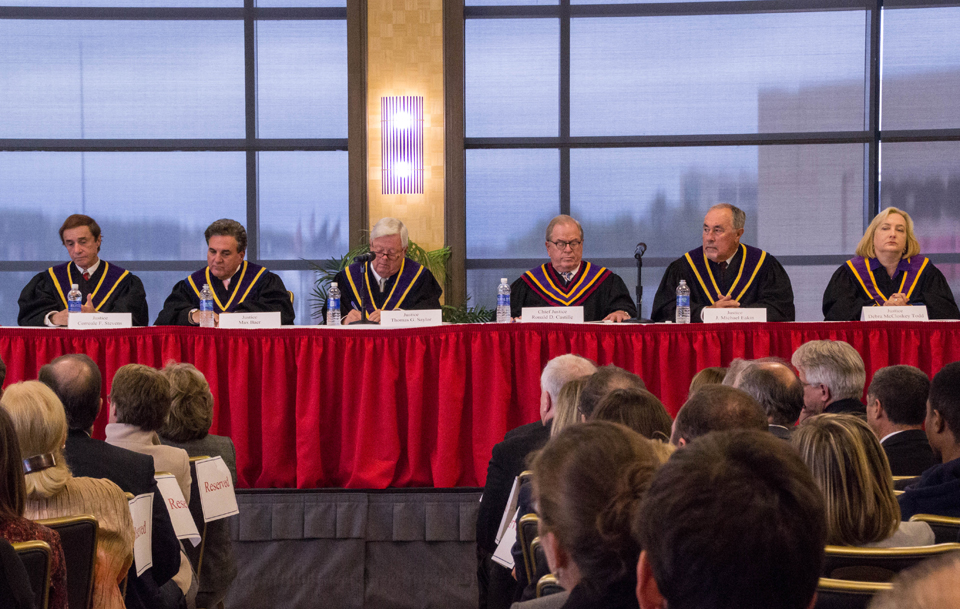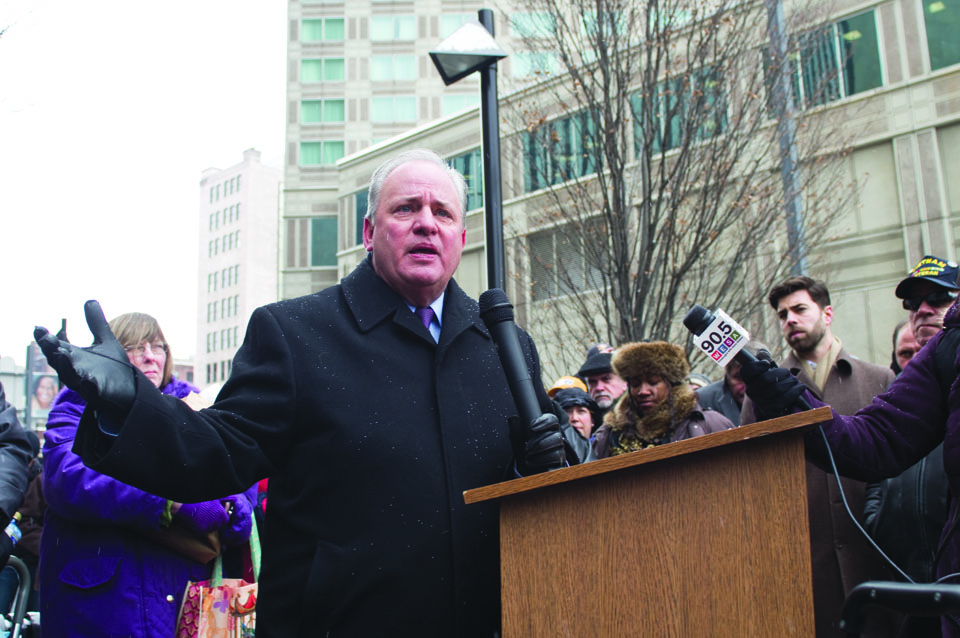

By Brandon Addeo | News Editor
Nine high school students from the Hill District are completing a five week drug research course this summer at the Citizen Science Lab on Bedford Avenue.
The lab, which was jointly founded by Duquesne and economic development nonprofit Urban Innovation21 in 2014, will offer the course — titled Drug Design Intensive — every weekday afternoon until August 3.
The program is designed to teach Hill District high school students the fundamentals of “life sciences,” such as biology and chemistry, and to expose students to the process for creating antibiotics, according to Citizen Science Lab Director Andre Samuel.
“[Students] will learn how to visualize protein structure and search small molecules that bind to a protein of interest using computer software,” Samuel said.
Samuel, who completed a Ph.D in biology at Duquesne, said students will be testing proteins and molecule structure with a computer program before conducting physical lab tests. He said these are the “same skills” used in today’s pharmaceutical industry.
Some of the lessons are taught by interns who hail from Pittsburgh universities, including Duquesne.
Klanice Martinez, a senior biology major at Duquesne, interns at the lab and teaches Drug Design Intensive classes. While she admitted teaching high school-aged kids was a “little intimidating” at first, Martinez said she loves watching the students learn.
“My favorite part … is watching them get so excited when something finally clicks,” she said. “One girl [explains] everything herself so she can prove she understands it.”
Darius Shields, 18, is one of the students enrolled in the course. He was introduced to the class by his football coach at University Prep high school, and though he first viewed it as simply “something to do” during the summer, what he found instead surprised him.
“As I’ve been coming here I’ve run into people that go to my school, and that’s what drew me in,” Shields said.
He said he wants to attend college to become an architect but wants to major in another area as well, such as science.
Samuel said offering the class specifically to students in the predominantly African-American Hill District was to “make sure” black students who are interested in life sciences have the opportunity to learn.
According to the National Science Foundation, as of 2014, only 6.4 percent of U.S. doctorate earners in science and engineering are African-American.
Samuel cited this statistic, and said he hopes to “improve” it.
“A lot of minority kids don’t know this particular field of science exists,” he said.
He added working in a real lab environment is an asset many minority students do not have access to.
Shields agreed, saying his school does not have the tools to conduct the kinds of experiments done in the Citizen Science Lab.
McAuley Ministries, a branch of Pittsburgh Mercy Health System, gave a $50,000 grant to the Citizen Science Lab in 2016 to begin the Drug Design Intensive in an effort to see “community and economic development” in the Hill District, according to McAuley Ministries Executive Director Michele Rone Cooper.
“Our goal … was to introduce teens to exciting careers that have growth potential, could ignite interest, and motivate them during the school year,” Rone Cooper said. “We know that high-growth, high-wage careers tend to fall within the science, technology, engineering, and math fields.”
Students in the course earn a weekly $125 stipend, Samuel said. After the five week long summer course ends, students will be invited to another course in the fall, in which the lessons learned in the summer course will be applied to a research project which seeks to discover new types of antibiotics.




